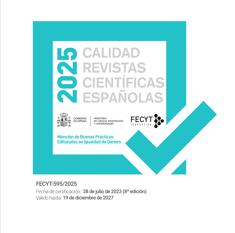New poverty. Eviction as a process of exclusion
DOI:
https://doi.org/10.15257/ehquidad.2015.0004Keywords:
Eviction, Foreclosure, Mortgage, Social Exclusion, Poverty.Abstract
The socialization of poverty represents a qualitative and quantitative growth of the phenomenon, due to the increased risk in different dimensions of life. The breakdown of the wage relationship is structured as a major risk factor of exclusion, along with other biographical variables such as health, family stability or education, generates new dynamics of vulnerability in middle-class groups . In this paper, attention is focused on the segments affected by this "accumulation of disadvantage" in a process that has resulted in the inability to cope with the mortgage payments associated with the main dwelling. To analyze this phenomenon, we used a methodological framework based on the triangulation, with a quantitative study based on a survey of 70 affected and a qualitative study based on 15 interviews with heads of associations, such as PAH, and holders homes in this situation. The results show an image diverse and complex, the presence of heterogeneous profiles share only, and not in all cases, the failure to pay stable relationship that usually appears together with other vital problems (separations, diseases...). The concept-approach “social exclusion” allows us to define some of the characteristics of the routes towards the eviction.Downloads
Download data is not yet available.
Downloads
Published
2016-05-29
How to Cite
Sabater Fernández, C., & Giró Miranda, J. (2016). New poverty. Eviction as a process of exclusion. EHQUIDAD. INTERNATIONAL JOURNAL OF WELFARE AND SOCIAL WORK POLICIES, (3), 77–106. https://doi.org/10.15257/ehquidad.2015.0004
Issue
Section
Artículos












